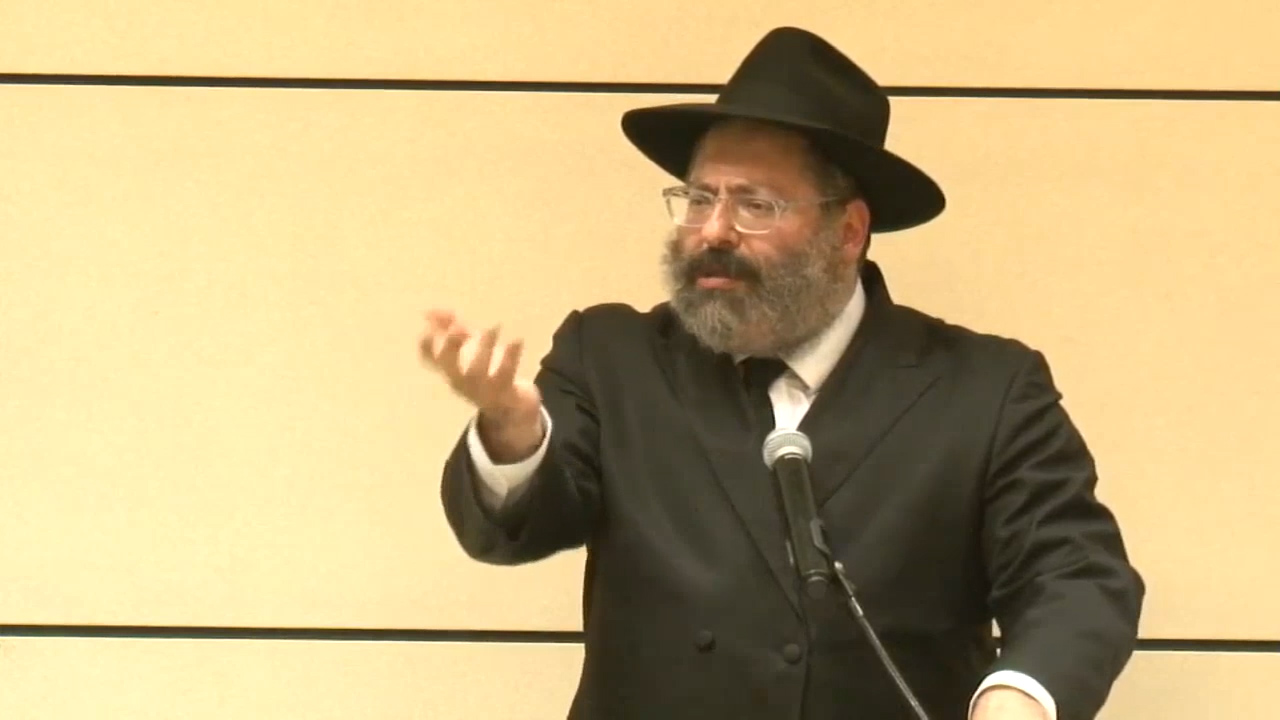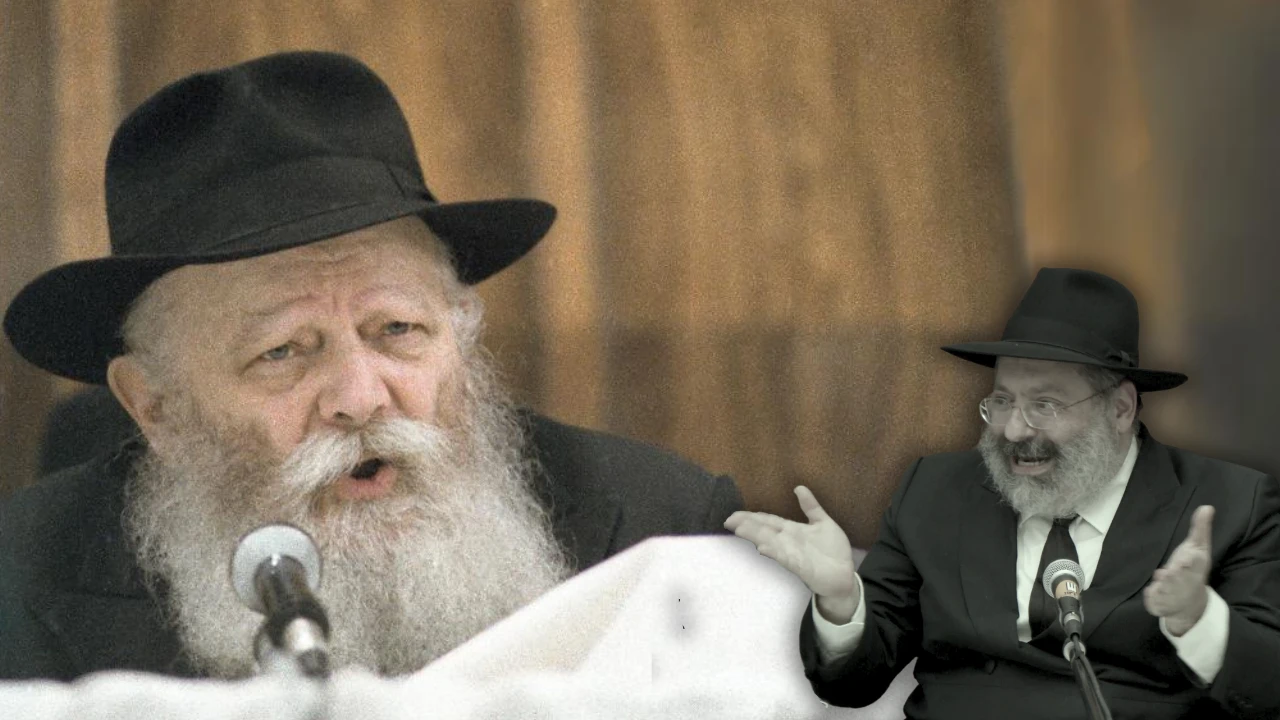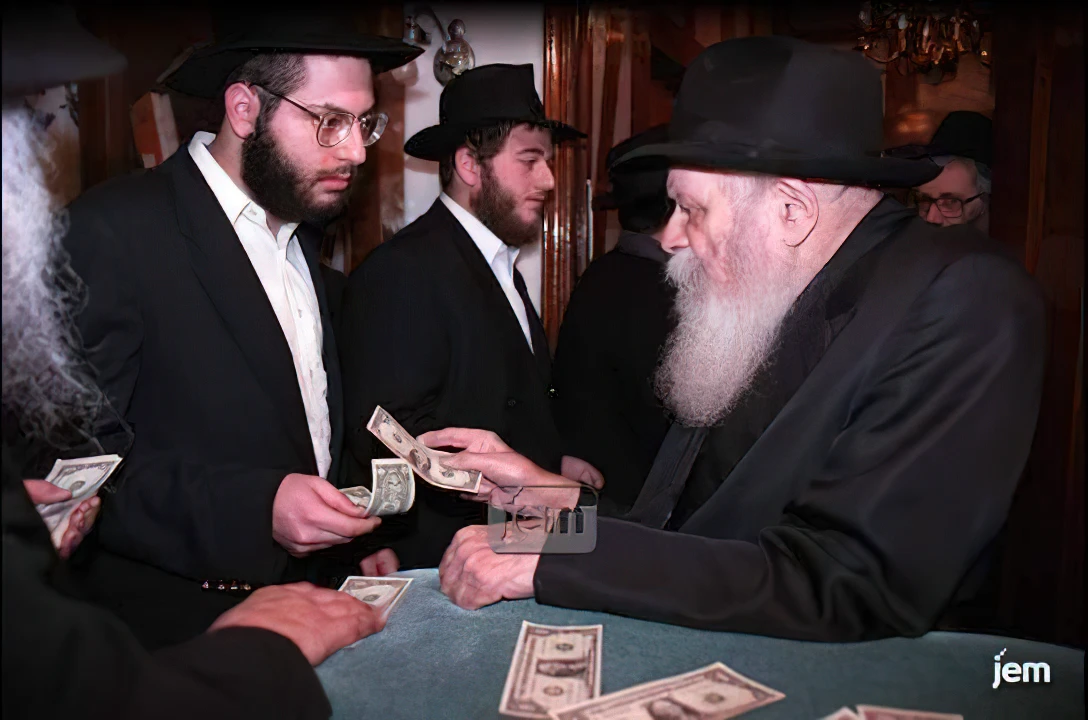Did the Jews Suffer from Attachment Disorder?
Moshe Understood that Healing Can Only Come by Connecting to the Sinners
59 min
Chassidus: Sefas Emes Ki Sisa
- March 4, 2021
- |
- 20 Adar 5781
Rabbi YY Jacobson
1135 views- 7Comment
- Call-in
Listen to the class on the phone
Call +1 (845) 201-1933
When prompted, dial the ID number below.
7971 MP3 MP4 Source Sheets - Copy Embed
Dedicated by Mrs. Pesha Goldsmith as an Alliyah Neshama for her grandson, Shneur Pesach ben Mordechai.
Class Summary:
This text-based class on Sefas Emes Parshas Ki Sisa was presented by Rabbi YY Jacobson on Thursday, Parshas Ki Sisa, 20 Adar, 5781, March 4, 2021, live from Rabbi Jacobson's home in Monsey, NY.
Tags
Categories
Chassidus: Sefas Emes Ki Sisa
Rabbi YY Jacobson
- March 4, 2021
- |
- 20 Adar 5781
- |
- 1135 views
Dedicated by Mrs. Pesha Goldsmith as an Alliyah Neshama for her grandson, Shneur Pesach ben Mordechai.
Related Classes
Please help us continue our work
Sign up to receive latest content by Rabbi YY
Join our WhatsApp Community
Join our WhatsApp Community













Please leave your comment below!
Anonymous -4 years ago
Re kappara over generations, was that even required for sin of detachment as opposed to sins of avoda Sara and gilui aroyos?? Or perhaps it was both because the detachment devolved into more grave aveiros?
Reply to this comment.Flag this comment.
Anonymous -4 years ago
So if the sin is essentially detachment why does it require such extensive kappara over the generations?
Reply to this comment.Flag this comment.
Sarah Goldberg -4 years ago
We are being tested constantly with challenges
To see if we rise to the test and challenge or not.
Perhaps Moshe was also being tested when the yidden sinned? Would he defend them, join them, and break the luchos or not?
If so, the entire chait ha'egel was not only a test for the yidden (would they succumb?) and also a test for Moshe if he would defend them and join them?
Reply to this comment.Flag this comment.
Sarah Goldberg -4 years ago
The yidden sinned so Moshe also sinned
Even before receiving the written contract, i.e. the tablets, the yidden heard the first 2 commandments directly and the other 8 indirectly. So it was binding already yet before delivery of the contract, the actual arrival of the tablets.
So the yidden sinned by breaching a fundamental commandment already given and binding.
And then Moshe sinned also by breaking the tablets and so, joined the yidden by sinning also.
BUT, how can you compare the sin of breaching a fundamental commandment like avodah zorah with the mere breaking of the luchos? There is no moral equivalent. Plus, where does it say one cannot break the luchos? How was that a sin at all?
Reply to this comment.Flag this comment.
Anonymous -4 years ago
Reply to this comment.Flag this comment.
Sarah Goldberg -4 years ago
A lover begins to write a love letter to his beloved
After writing, before mailing (or pressing "send") he hears his beloved has done something unbecoming or worse. He still loves his beloved regardless.
But he can't continue to send his love letter.
So he crumples it up.
Then he realizes his love is greater than the unbecoming conduct. He loves his beloved unconditionally.
And then he picks up the pen again and restarts writing. He finishes and sends the second letter.
Reply to this comment.Flag this comment.
Sarah Goldberg -4 years ago
And the lover rewrites the exact same words the second time?
Reply to this comment.Flag this comment.
Sarah Goldberg -4 years ago
The engraving in the tablets liberated the yidden from death and the yetzer
People originally intended to live forever sin-free. Then Adam and Chava destroyed that original plan. And then the tablets (meaning all of Torah) was designed to re-establish that status before the chait aitz hadaas.
But, again, the yidden sinned in the mid bar, so once again, death and sin came back. And indeed that generation was sentenced to pass away in the midst.
But, did Moshe also sin? He, too, passed away. Was his sin by striking the rock sufficient for him to be sentenced to death? Or just enough of a sin to disallow entry to EY?
Reply to this comment.Flag this comment.